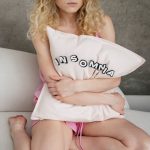Safe Sedatives To Take For Sleep

The collective term sleep disorder refers to conditions that affect sleep quality, timing, or duration and impact a person’s ability to properly function while they are awake. These disorders can contribute to other medical problems, and some may also be symptoms of underlying mental health issues.
Data indicates that more than one-third of adults in the United States report getting fewer than 7 hours of sleep in a 24-hour period. More than 70 percent of high school students report getting fewer than 8 hours of sleep on weeknights.
Most people occasionally experience sleeping problems due to stress, hectic schedules, and other outside influences. However, when these issues begin to occur on a regular basis and interfere with daily life, they may indicate a sleeping disorder.
Depending on the type of sleep disorder, people may have a difficult time falling asleep and may feel extremely tired throughout the day. The lack of sleep can have a negative impact on energy, mood, concentration, and overall health.
What are sleeping pills?
Sleeping pills also known as hypnotics, sedatives, sleep aids, sleep medicine, or tranquilizers are medications that help you catch some sleep. People who have sleep disorders like insomnia may take these medications to help them fall asleep. Sleeping medicines can also help you stay asleep if you’re prone to waking up in the middle of the night.
How do sleeping pills work?
There are various types of sleeping pills. Each works differently. Some sleep aids cause drowsiness, while others silence the area of the brain that keeps you alert.
What medicines can you take for sleep deprivation?
According to WebMD the following medications can be used to treat insomnia.
• Antidepressants: Some antidepressant drugs, such as trazodone (Desyrel), are very good at treating sleeplessness and anxiety.
• Benzodiazepines: These older sleeping pills — emazepam (Restoril), triazolam (Halcion), and others — may be useful when you want an insomnia medication that stays in the system longer. For instance, they have been effectively used to treat sleep problems such as sleepwalking and night terrors. These medications have some serious downsides. They can cause addiction and dependence. Dependence means that you have physical withdrawal when you stop them, which you can have in the case of benzos. Also, there is a black box warning against their use with opioids, because both depress respiration and increase your risk of overdose.
• Doxepine (Silenor): This sleep drug is approved for use in people who have trouble staying asleep. Silenor may help with sleep maintenance by blocking histamine receptors. Do not take this drug unless you are able to get a full 7 or 8 hours of sleep.
• Eszopiclone (Lunesta): Lunesta also helps you fall asleep quickly, and studies show people sleep an average of 7 to 8 hours. Don’t take Lunesta unless you are able to get a full night’s sleep as it could cause grogginess. Because of the risk of impairment the next day, the FDA recommends the starting dose of Lunesta be no more than 1 milligram.
• Lemborexant (Dayvigo): This drug is approved for people who have trouble falling asleep and staying asleep. It works by suppressing the part of the central nervous system that keeps you awake. It may cause you to feel sleepy the next day.
• Ramelteon (Rozerem): This sleep medication works differently than the others. It works by targeting the sleep-wake cycle, not by depressing the central nervous system. It is prescribed for people who have trouble falling asleep. Rozerem can be prescribed for long-term use, and the drug has shown no evidence of abuse or dependence.
• Suvorexant (Belsomra): It works by blocking a hormone that promotes wakefulness and causes insomnia. It is approved by the FDA to treat people that have insomnia due to an inability to fall asleep or to stay asleep. The drug may cause you to feel sleepy the following day.
• Zaleplon (Sonata): Of all the newer sleeping pills, Sonata stays active in the body for the shortest amount of time. That means you can try to fall asleep on your own. Then, if you’re still staring at the clock at 2 a.m., you can take it without feeling drowsy in the morning. But if you tend to wake during the night, this might not be the best choice for you.
• Zolpidem (Ambien, Edluar, Intermezzo): These medicines work well at helping you get to sleep, but some people tend to wake up in the middle of the night. Zolpidem is now available in an extended release version, Ambien CR. This may help you go to sleep and stay asleep longer. The FDA warns that you should not drive or do anything that requires you to be alert the day after taking Ambien CR because it stays in the body a long time. You should not take zolpidem unless you are able to get a full night’s sleep — at least 7 to 8 hours. In rare instances, these medications have been known to cause injuries because of behaviors while asleep or partially asleep such as sleep-walking and sleep-driving, among others. The FDA has approved a prescription oral spray called Zolpimist, which contains zolpidem, for the short-term treatment of insomnia brought on by trouble falling asleep.
• Over-the-counter sleep aids: Most of these sleeping pills are antihistamines or melatonin-containing supplements. Melatonin supplements are frequently used as a sleep aid. They help you fall asleep, improve sleep quality, and increase sleep duration. However, they don’t appear to be as effective as many other sleep medications. Sleep isn’t the only body function melatonin affects. There is no proof that they work well for insomnia, and they can cause some drowsiness the next day. They’re safe enough to be sold without a prescription. But if you’re taking other drugs that also contain antihistamines — like cold or allergy medications — you could inadvertently take too much.
If these medications don’t work for you, your doctor may suggest something off-label. These are medications used to treat conditions they weren’t originally made for. Older antidepressants are sometimes prescribed to treat insomnia because they change brain chemicals, which can help regulate sleep. These older medications also tend to have a sedative effect or make you sleepy. They include:
• Amitriptyline (Elavil)
• Mirtazapine (Remeron SolTab, Remeron)
• Nortriptyline (Aventyl, Pamelor)
The FDA issued warnings for prescription sleep drugs, alerting patients that they can cause rare allergic reactions and complex sleep-related behaviors, including “sleep-driving.” They also warned people that taking sleeping medication at night can impair their ability to drive or be fully alert — even the next day.
Keep in mind that sleeping pills are not for long-term use. Talk to your doctor if you’re still having trouble sleeping after 2 weeks.
How to safely take sleeping pills
If your best attempts to get a good night’s sleep have failed, prescription sleeping pills may be an option. Here’s some advice on how to use them safely.
• Get a medical evaluation. Before you take sleeping pills, see your doctor for a thorough exam. Often, your doctor may be able to find specific causes for your insomnia. If you’re taking sleeping pills for more than a few weeks, talk to your doctor about an appropriate follow-up schedule to discuss your medications.
• Read the medication guide. Read the medication guide for patients so that you understand how and when to take your medication and what the major potential side effects are. If you have any questions, ask your pharmacist or your doctor.
• Never take a sleeping pill until you’re going to bed. Sleeping pills can make you less aware of what you’re doing, increasing the risk of dangerous situations. Wait to take your sleeping pill until you’ve completed all of your evening activities, immediately before you plan on sleeping.
• Take your sleeping pill when you can get a full night’s sleep. Only take a sleeping pill when you know you can get a full night’s sleep of at least seven to eight hours. A few short-acting sleeping pills are intended for middle of the night awakenings, so you may take them when you can stay in bed for at least four hours.
• Watch for side effects. If you feel sleepy or dizzy during the day or if you experience any other significant side effects, talk to your doctor about changing your dose or weaning off your pills. Don’t take a new sleeping pill the night before an important appointment or activity because you won’t know how it affects you.
• Avoid alcohol. Never mix alcohol and sleeping pills. Alcohol increases the sedative effects of the pills. Even a small amount of alcohol combined with sleeping pills can make you feel dizzy, confused or faint. Combining alcohol with certain sleeping pills can lead to dangerously slowed breathing or unresponsiveness. And alcohol can actually cause insomnia.
• Take sleeping pills strictly as prescribed by your doctor. Some prescription sleeping pills are for short-term use only. Be sure to contact your doctor for advice. Also, don’t take a higher dose than prescribed. If the initial dose doesn’t produce the intended effect on sleep, don’t take more pills without first talking to your doctor.
• Quit carefully. When you’re ready to stop taking sleeping pills, follow your doctor’s or pharmacist’s instructions or the directions on the label. Some medications must be stopped gradually. Also, be aware that you may have some short-term rebound insomnia for a few days after you stop taking sleeping pills.
If you continue to have trouble sleeping, ask your doctor for additional help.





